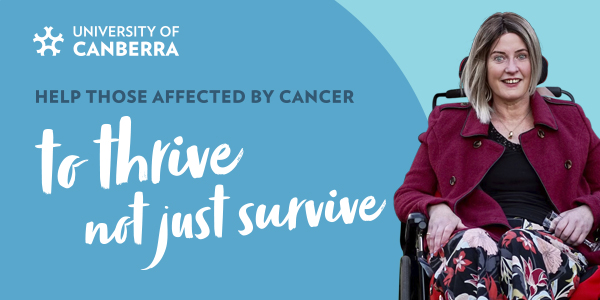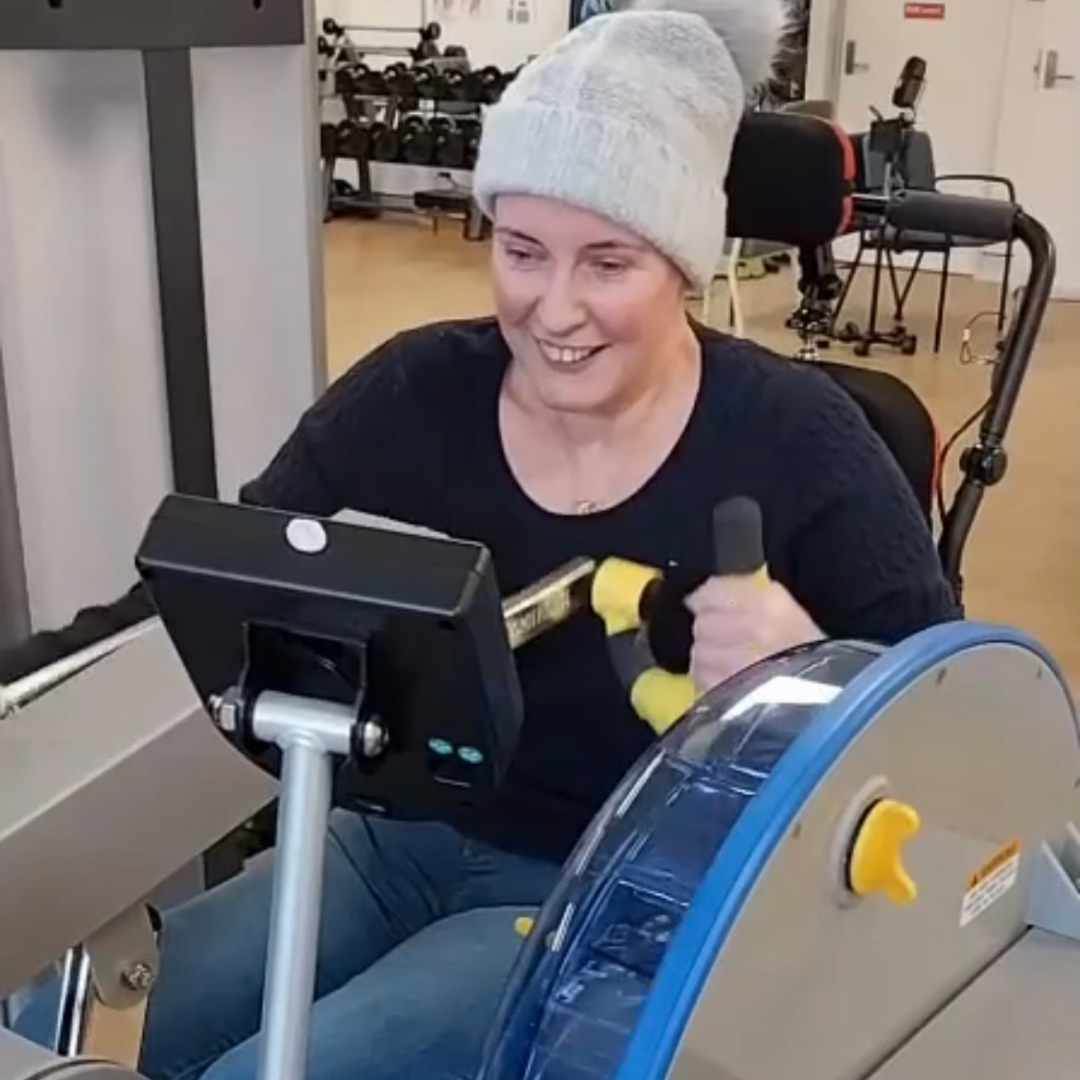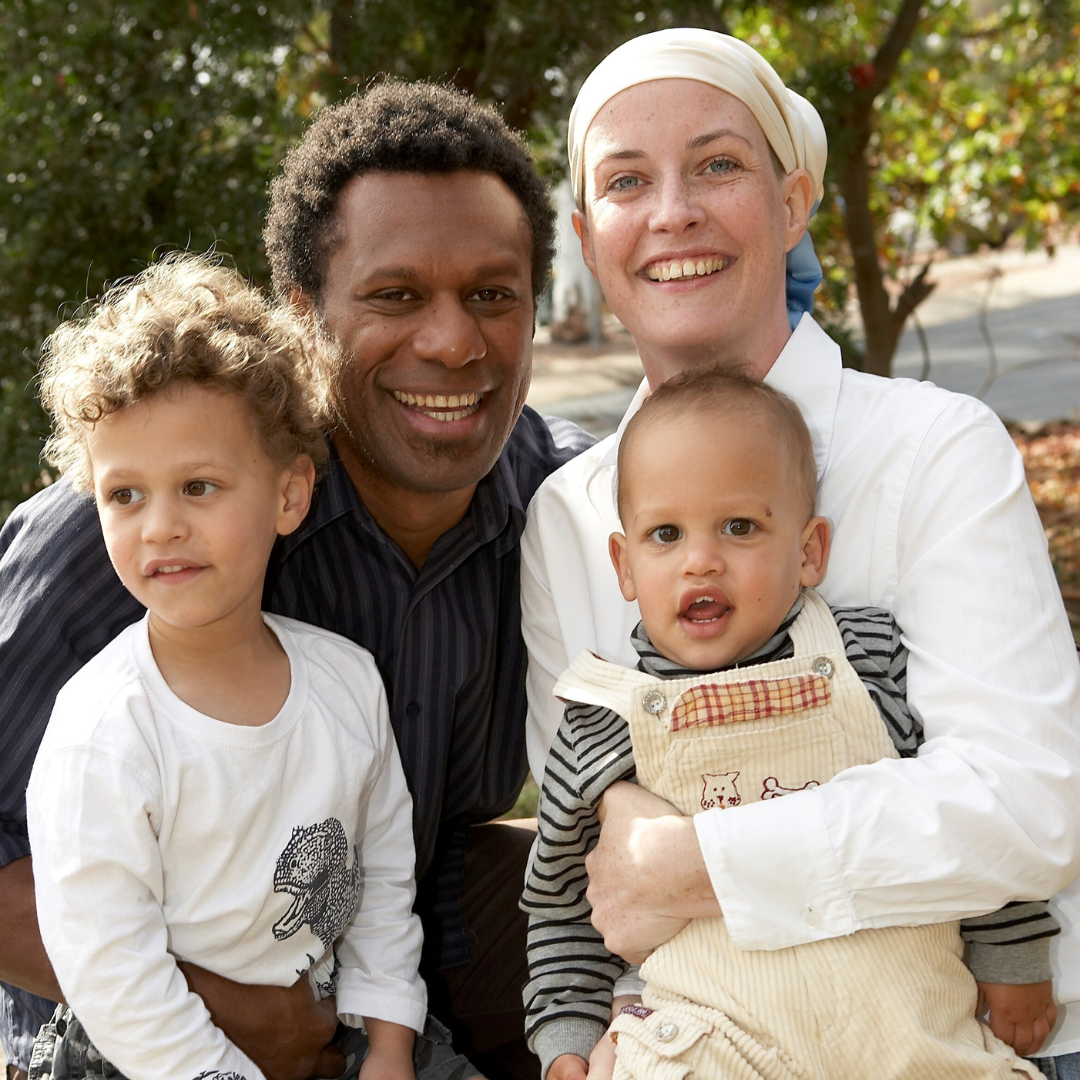
‘Survivorship’ was not a word discussed throughout Sarah’s diagnosis. At no point during her treatment was she made aware of holistic person-centred care, exercise therapy, individualised dietary support, or mental health treatment options to help her cope with cancer and its side-effects.
“I had slipped through the cracks during my treatment and aftercare. I didn’t even have a neurologist until 2015. That’s eight years after my initial diagnosis, surgeries, chemotherapy, and intensive radiation to my brain!”
Sarah’s husband Oscar, who she had met on residence at the University of Canberra in 1993, had taken on the role of carer, and was her rock from the time of her diagnosis. She was grief-stricken when he passed away from a random brain aneurysm in 2020, leaving her without her best friend and greatest support. Sarah now had to navigate her own way through her survivorship journey and in supporting the emotional needs of her children.
Unfortunately, there was no guidebook on how to deal with the terrifying hardship that is brain cancer, and there were no care nurse coordinators to help her. This lack of care negatively impacted her mental and physical health, and significantly inhibited her recovery.
The PACES (Pre-habilitation, Activity, Cancer, Exercise and Survivorship) research group at the University of Canberra is making certain that those affected by cancer can receive personalised, holistic, timely, and accessible cancer care, from the point of diagnosis, before and during active treatment, and into survivorship, ensuring that Sarah’s experience is an exception, not the rule.
“If PACES research had existed when I was first diagnosed, it would have made a huge difference in my quality of life.”
This globally recognised research is happening right here in the ACT and has led to programs like the UC Cancer Recovery Program, in which Sarah is now a participant following a kidney cancer diagnosis in November 2020.
This program allows those who have been diagnosed with cancer to receive subsidised, tailored, multi-professional healthcare. Supporting both them and their family throughout the many challenges of a cancer journey.
For people like Sarah, the UC Cancer Recovery Program ensures that she has the means to achieve her health goals.
“Not only am I determined to walk again, but the strength and OT exercises help me in everyday life. It’s not about setting goals to run marathons for me, it’s the simple things that improve the quality of living the fullest life with my children. I don’t want to just survive; I want to thrive! I know it’s a cliché, but it’s true.”
|  Image: Sarah at the UC Cancer Wellness Clinic this year Image: Sarah at the UC Cancer Wellness Clinic this year |


